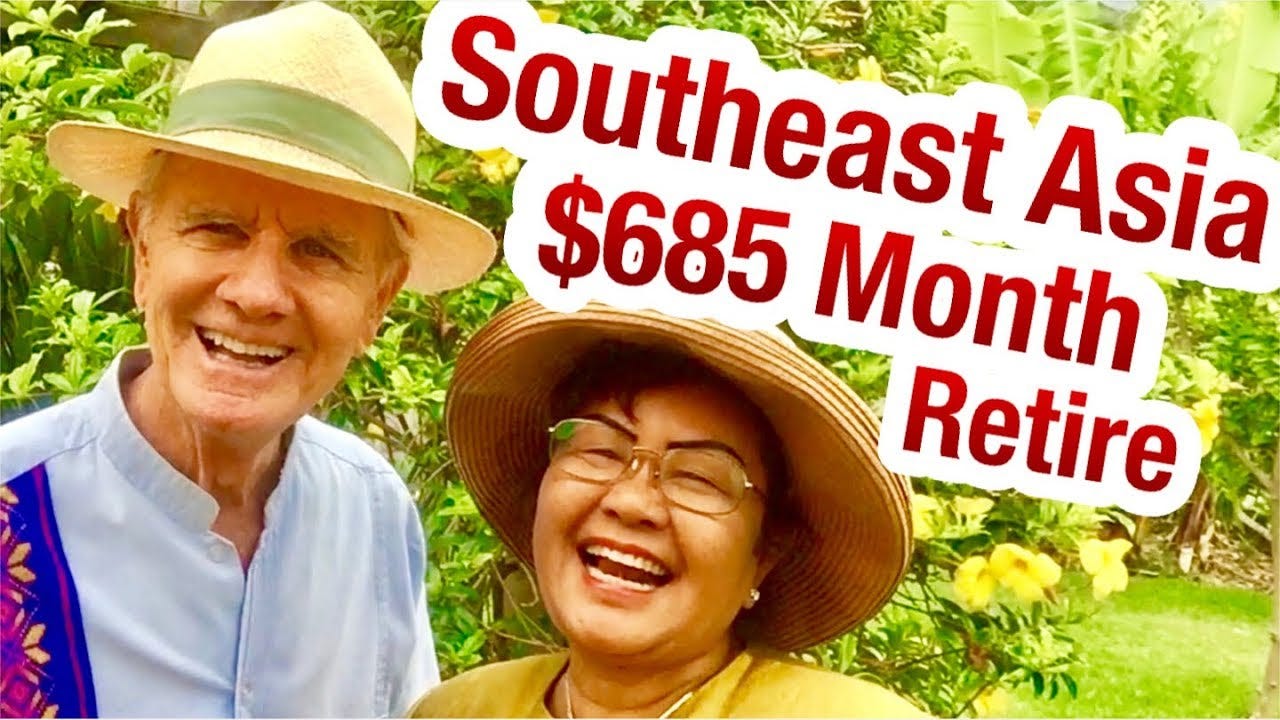In modern times, retirement is often dismissed as ‘the end of work’—a period where you spend your hard earned money on whatever you want in the twilight years of your life. But as we’ve explored here in the past, retirement isn’t simply a status awarded by age or a number in your bank account. It’s the freedom to choose how you spend your time. It’s about designing a lifestyle where you don’t labour merely to earn a living and provide for your family—instead, you spend your time doing what you want, when you want, how you want to do it. This is at the heart of the FIRE (Financial Independence, Retire Early) philosophy: retirement isn’t the end of work; but about reclaiming your time and living freely on your terms.
Many people don’t think about retirement until they are close to it: 40% of retirees are considering returning to part-time or full-time employment. I’ve seen this firsthand— I met many "retired" coworkers while working in retail. They often felt bored after “retiring” and realized they lacked passions or activities outside their jobs (other than travelling)—a common trait among 9-to-5 workers. As a result, they returned to what they knew best: work, albeit at a reduced capacity. Moreover, due to inadequate financial planning, more than half of Canadians over 60 work because of financial necessity.
That being said, the few who do think of retirement constantly evaluate their retirement strategies. With the cost of living soaring—driven by expensive housing, skyrocketing healthcare, and ever-increasing everyday necessities—the cultural landscape is evolving, too. In many cities, buying a home has become an elusive dream when a paycheck barely covers the essentials, let alone the luxuries. The notion of working 40 hours a week for over three decades suddenly doesn’t feel as attractive as it once did. (writing this last line is pretty crazy. Is this why we were created: to spend a large part of our prime doing stuff we don’t [always] enjoy?).
GeoArbitrage
This shift, largely accelerated by the pandemic, has spurred many people to move into lower-cost living areas. Whether it’s exploring opportunities within their own country or, for the truly bold, leaving their homeland altogether in search of greener pastures, people are actively seeking environments where their money goes further. Recognizing this trend, several countries have introduced retirement and nomad visas, providing a welcoming gateway for those eager to improve their life.
Consider countries like Thailand, Mexico, and Portugal. These destinations offer a vibrant quality of life at a fraction of the cost found in many Western cities. You can stretch every dollar further through attractive retirement visas with generous benefits—redirect funds from essential obligations to experiences that enrich your life. This is a clear result of globalization: for those of us dreaming of financial independence and a good “Western” quality of life, there are enticing alternatives scattered across the globe.
Countries with active retirement or expat visa schemes have witnessed measurable economic benefits— Expat and retirement communities have injected hundreds of millions into local tourism and service jobs. Meanwhile, in Southeast Asia, retiree patronage has driven nearly $95 billion annually into healthcare and service sectors, aiding local markets through sustained spending. Over in Portugal, the Golden Visa program has unlocked over €7.5 billion in economic activity since its inception.
How does Africa fit into this?
The answer is straightforward: our continent is a hidden gem for reinventing retirement and opportunity. Unlike the Western model, where retirement is often institutionalized and synonymous with withdrawing from work, the concept in Africa is more fluid. Here, retirement isn’t about relying solely on pension checks or living in impersonal retirement homes; rather, it is deeply integrated into the fabric of family and community life.
Because Africa remains underrated compared to flashy destinations, costs are very attractive. Moreover, many African nations are strategically located (center of the world), making international travel and business easier than ever.
In Africa, the idea of retiring relies on familial support, reflecting our inherent collectivist values. While Western societies prioritize individualism, retirement homes are largely absent on our continent. Instead, multigenerational living arrangements are the norm, where children support their parents through regular monetary gifts, food, and other essential resources. However, some individuals never truly retire due to financial constraints or a lack of planning for retirement.
Yet, when you peel back these layers, you discover that Africa’s cultural richness and lower cost of living foster a truly intentional lifestyle. In stark contrast to the homogenized, expensive Western urban cities, Africa offers a chance to reconnect with your roots, embrace a sense of belonging, and enjoy a quality of life that truly pays. For example, it is common in many African countries to take extended, two-plus hour lunch breaks. Or the fact that holidays are not just simply a day off, but a time for celebration, joy, and simply an experience that is not bombarded with capitalist posterity. Even shopping in local markets is fundamentally different in Africa: at lunchtime, buyer and seller share lunch or pray together (taking a break from haggling prices). Such leisurely pauses are almost unheard of in other parts of the world and speak to a wider culture that prizes balance and well-being above the daily grind.
The African Example
Take Mauritius, for example. This tropical island has joined the niche of retirement destinations by formalizing a retirement visa system that turns every retiree into a local investor. In addition to offering a pleasant environment, Mauritius requires retirees to agree to commitments like depositing a minimum of U$2,500 per month into local banks. It's a win-win situation: the retiree gains the luxury of living in a vibrant tropical setting where their purchasing power holds more value, while the country benefits from a steady stream of foreign capital. And Mauritius isn’t unique in that aspect. Across Africa, there are pockets where retirees, both Africans and expatriates, are doing the same: in Kenya’s coastal town of Malindi, thousands of retired Italians have transformed an unassuming community into a vibrant mini-paradise—a true fusion of culture and commerce. Similarly, resort communities and thoughtfully planned enclaves in Senegal, Ghana, and South Africa offer a cost-effective yet indulgent lifestyle. An increasing number of the diaspora have recognized these opportunities and are returning home, injecting fresh energy and capital into their local economies.
Morocco was the most visited country in Africa in 2024, a testament to its rich history, tactical geographical location, and dynamic modern appeal. Morocco perfectly illustrates how a balance of culture, affordability, and modern amenities can make a destination irresistible to retirees.
I must confess: I never saw the appeal of investing heavily in tourism and hospitality in Africa. We have plenty of other things we need to worry about and invest in. However, witnessing how Mauritius and these other examples have the potential to boost their local economies has changed my mind entirely.
More African nations should take a leaf out of Mauritius’ playbook. By adopting and formalizing similar initiatives, countries across the continent can attract both foreign and local investment. Such initiatives would enhance the population's quality of life and create a sustainable influx of capital, paving the way for vibrancy and growth in local markets. This approach could also serve as inspiration for greater financial independence and planning.
Choices
Simply put, your money goes further—here, you can easily live a six-figure lifestyle on a median Western salary. Don’t believe me? Nairobi, one of the most expensive cities in Africa, is 70% cheaper than many major Western metropolises. Rent, food, childcare services and more cost only a fraction of what you’d pay in the West while upholding globalized lifestyle quality. This affordability not only secures a comfortable lifestyle but also leaves ample room for luxuries. The thousands of dollars you save every month enable you to invest in your passions, allocate extra funds for vacations—even though you may already enjoy living in a tropical paradise—and genuinely enjoy the flexibility of your daily life. Of course, this assumes you’re equipped to seize these opportunities. Which you probably do, or at least are working on since you’re reading a personal finance post.
Of course, the journey to making Africa a true retirement destination isn’t without its challenges. There are infrastructural hurdles, cultural attitudes, and political challenges to navigate, as well as the need for more robust support systems for those coming from abroad or returning from the diaspora. However, these challenges also highlight the opportunities for growth and innovation which many Africans are already tackling.
At its core, retiring in Africa means not waiting till you’re the arbitrary age of 65 to have your “Golden Years” but making your Golden Years happen when and how you want. Retirement is no longer a phase where you “go” once you can no longer work—it’s a lifestyle upgrade on your terms.
While the West struggles with rising costs, cultural clashes, and diminishing authentic connections, Africa is ready to provide you with experiences that nurture both your wallet and life.









‘ At its core, retiring in Africa means not waiting till you’re the arbitrary age of 65 to have your “Golden Years” but making your Golden Years happen when and how you want. ‘
This is key, in my view. But you only gave example of Mauritius, SA, Ghana, Senegal and Morocco. Maybe more research could give you additional places. We have 55 countries in Africa. Citing 1/10 on them makes it exceptional. No?
A thought-provoking essay that offers a refreshing perspective on retirement, challenging conventional Western views by emphasizing financial independence, cultural integration, and lifestyle design.
Too often, we postpone planning; only to be caught unprepared later for retirement. Thanks Malik